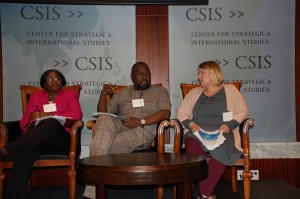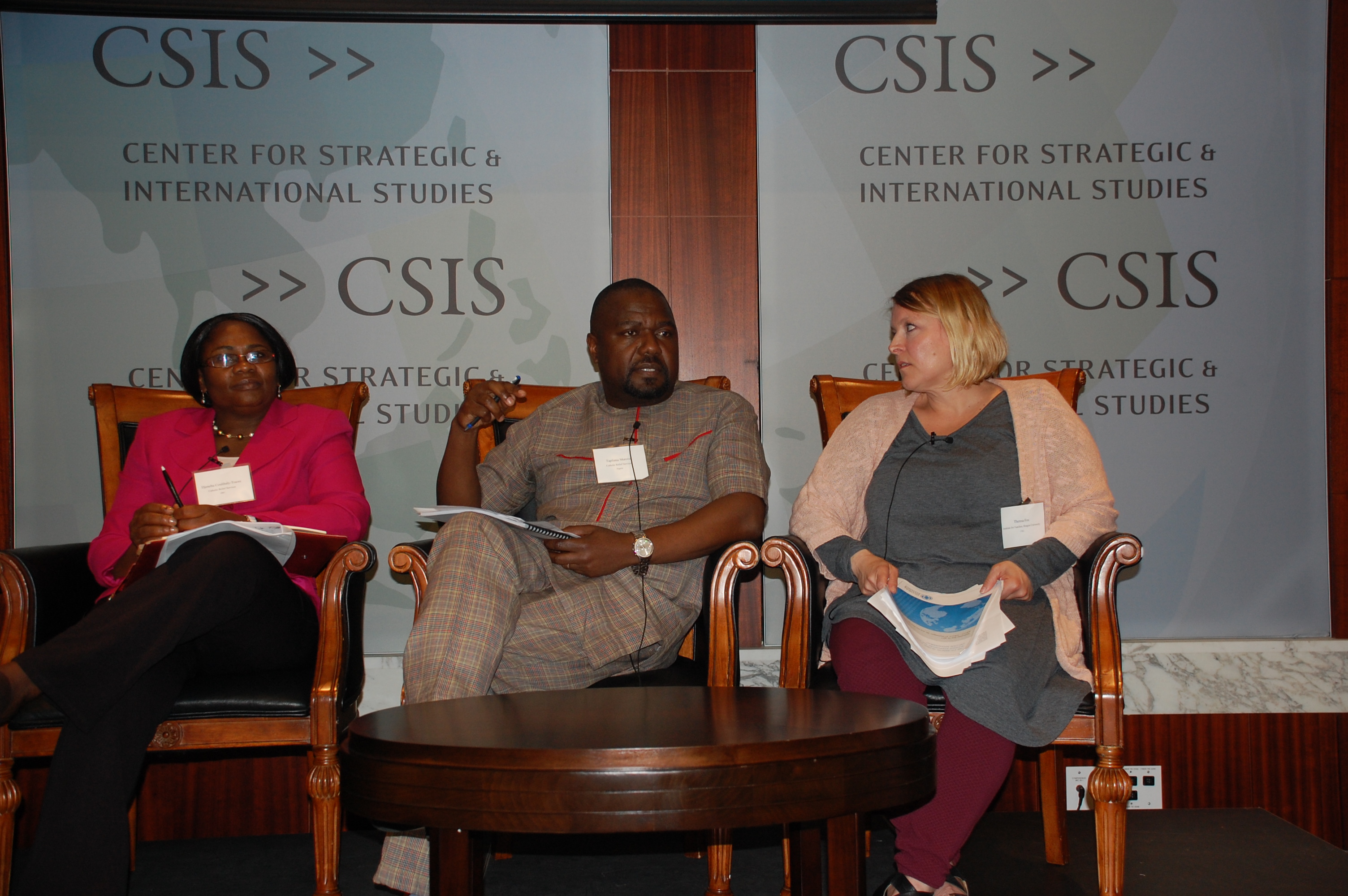By Paul R. Pace, News staff
To stop the spread of HIV, it cannot be treated as a health or medical problem alone, says Tom Fenn, project director of the Coordinating Comprehensive Care for Children (4Children).

Panelists share insights to strengthen HIV case management at the 4th Annual Global Social Service Workforce Alliance.
“It’s not going to go away if we act like it’s the health sector’s responsibility or simply a question of ensuring we test and treat everyone,” he said.
“HIV is a disease with its roots in inequality,” Fenn says. To make an AIDS-free generation a reality, efforts must be made to tackle the social and economic factors that fuel and impact the epidemic, he added.
Fenn shared his remarks at the 4th Annual Global Social Service Workforce Alliance Symposium: Case Management and the Social Service Workforce on May 24 in Washington, D.C.
The GSSWA, based in Washington, works toward a world where a well-planned, well-trained and well-supported social service workforce effectively delivers promising practices that improve the lives of vulnerable populations.
Susan Rubin, assistant director of the NASW Foundation, serves on the GSSWA’s Steering Committee. She and other NASW staff attended the symposium.
The meeting, which was streamed live around the world, offered practitioners, government representatives, scholars and other experts an opportunity to examine case management’s role in addressing HIV/AIDS, as well as other causes of vulnerability of issues requiring an integrated approach to social services.
“Case management has truly become the unifying tool in the HIV response, contributing to our efforts to identify, access and prioritize risk and vulnerability; and to our efforts to engage families and communities in the development and monitoring of case plans,” Fenn told attendees.
He added that case management also helps strengthen family capacity and resilience, and supports efforts for children to receive and benefit from comprehensive care.
PEPFAR
Fenn noted the U.S. President’s Emergency Plan for AIDS Relief (PEPFAR), is taking on the lion’s share of the global response to treat and prevent the spread of HIV/AIDS.
He said in 2015, five countries provided 80 percent of the world’s multilateral HIV funding and 66 percent of that came from PEPFAR.
Because of PEPFAR’s efforts, 18 million people are now accessing HIV/AIDS treatment, Fenn said. “We’ve seen particular success in tackling new infections among children, as 1.6 million new pediatric infections have been prevented since the year 2000.”
But much work remains ahead, Fenn noted.
He said according to the U.N., the number of HIV infections has not dropped and has stayed at roughly 2.1 million per year. The number of pregnant women with HIV is still at 1.4 million and has been there for six years. In addition, Fenn said adolescent girls are still disproportionately infected with HIV.
In 2015, there were still more than 13 million children who had one or both parents die from AIDS, he said. “The epidemic is still one of the major human rights issues of our time.”
Continued support for social services is necessary to address the social and economic factors that fuel the epidemic, he said. Poverty, food insecurity, drug and alcohol abuse, social marginalization, exclusion, stigma, inequity, gender inequity, violence and sexual exploitation are increasing risk and decreasing resilience.
From the July 2017 NASW News. NASW members may read the full story here.




